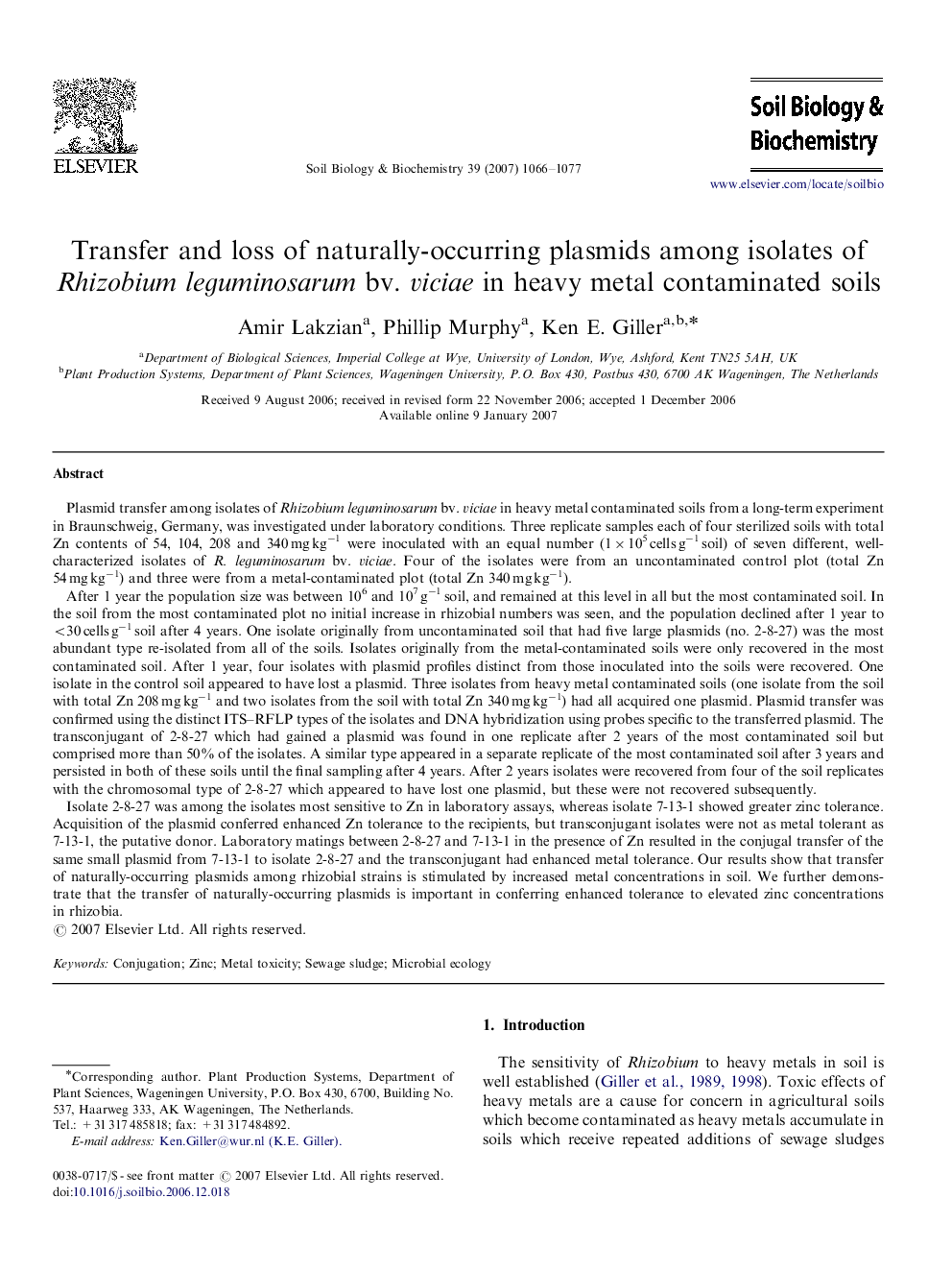| Article ID | Journal | Published Year | Pages | File Type |
|---|---|---|---|---|
| 2026414 | Soil Biology and Biochemistry | 2007 | 12 Pages |
Abstract
Isolate 2-8-27 was among the isolates most sensitive to Zn in laboratory assays, whereas isolate 7-13-1 showed greater zinc tolerance. Acquisition of the plasmid conferred enhanced Zn tolerance to the recipients, but transconjugant isolates were not as metal tolerant as 7-13-1, the putative donor. Laboratory matings between 2-8-27 and 7-13-1 in the presence of Zn resulted in the conjugal transfer of the same small plasmid from 7-13-1 to isolate 2-8-27 and the transconjugant had enhanced metal tolerance. Our results show that transfer of naturally-occurring plasmids among rhizobial strains is stimulated by increased metal concentrations in soil. We further demonstrate that the transfer of naturally-occurring plasmids is important in conferring enhanced tolerance to elevated zinc concentrations in rhizobia.
Related Topics
Life Sciences
Agricultural and Biological Sciences
Soil Science
Authors
Amir Lakzian, Phillip Murphy, Ken E. Giller,
